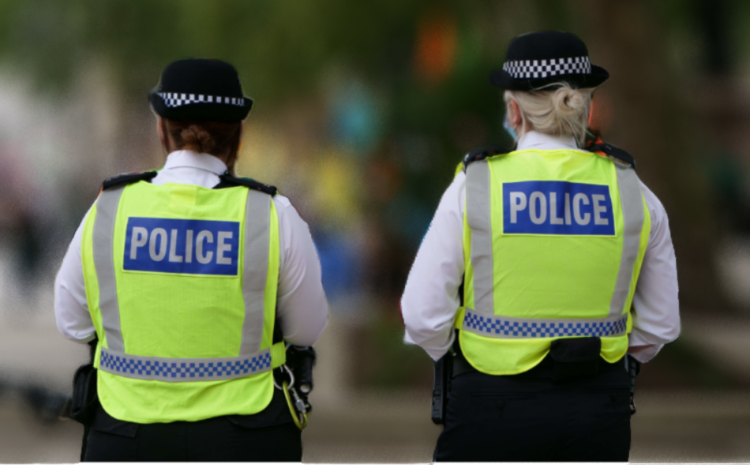By Tony O’Reilley-
The Met Police has accepted 15 recommendations from the Independent Office for Police Conduct (IOPC) following an investigation into the conduct of a team of officers at Charing Cross Police Station between 2016 and 2018.
Deputy Assistant Commissioner Bas Javid, said: “Like so many people I was disgusted to see officers involved in sharing deeply offensive and discriminatory messages. Their behaviour was unacceptable.
“I know many of my colleagues across policing also felt ashamed and disappointed. We are determined to root out people who don’t share our values and don’t belong in the Met. As we do this, unfortunately, we will continue to see more cases where officers and staff fail to uphold our expectations of them.
“While the team involved in this case was disbanded a number of years before the report was published, and the IOPC has recognised that we have already taken steps to improve our culture and standards, it’s clear we still have a large amount of work to do.
“The recommendations are wide ranging and we will use them, along with our existing rebuilding trust plan and our strategy for inclusion, diversity and engagement, to drive forward lasting change that will help improve the public’s confidence in the Metropolitan Police Service.”
The behaviour came to light in 2017 after concerns were raised by an officer. We began an immediate investigation and referred the allegations to the IOPC. The Met did not wait for the final report to take action and have already made a number of changes:
We have launched a hard hitting internal standards campaign to remind officers and staff of their responsibilities and to encourage colleagues to report any concerns or wrongdoing.
We have introduced a mandatory training programme to encourage Met employees to help tackle sexual harassment and misogyny in the workplace. The training includes real life examples of inappropriate behaviour reported by colleagues across the organization.
We are making it clear that there is no place in the Met for anyone who is a bully, or for anyone who is discriminatory, or who doesn’t understand that sexual harassment is utterly wrong. We will take action against those who act in this way or display these views. We will use the independent misconduct process to its full extent.
We have invested in growing the numbers of investigators with our Directorate of Professional Standards, which includes the creation of a new team focused on the investigation of allegations of sexual misconduct and domestic abuse. This will improve our ability to identify patterns of concerning online and ‘real world’ behaviours in the workplace.
‘There has been an increased focus on standards at the Central West Basic Command Unit, which includes Charing Cross Police Station. A new dedicated Chief Inspector has been appointed to lead a new proactive team responsible for neighbourhood policing in the West End to ensure scrutiny and improved leadership.
‘Every Met employee has also been spoken to about their responsible use of social media.
We have launched a new action plan aimed at improving our response to Violence Against Women and Girls, which will target perpetrators, improve outcomes for victims and raise the standards of officers.
‘We are seeking to work with City Hall and the Home Office to explore jointly, and with partners across policing, two critical policy issues that we believe require urgent attention:
– To address frustrations that the misconduct process, for all its careful construction after extensive consultation, takes too long and takes too little account of the importance of public trust and confidence. We do not under-estimate the challenge of achieving change in a national system, but a wide debate is needed and one we will seek to lead from London.
– Whether we should have the ability to review the personal phone and social media accounts of officers and staff – on a random or with cause basis – to assess whether they are expressing inappropriate views which may undermine their ability to be a police officer, or which could undermine public trust and confidence. This is a contested and complex area, but is again one in need of a national debate.
Misconduct investigation
The actions of 14 officers were investigated by the Independent Office for Police Conduct, which concluded two of the 14 officers had a case to answer for gross misconduct and therefore should face misconduct hearings. Due to this being an independent investigation by the IOPC, it was they, rather than the Met, who decided the level of seriousness of the allegations. An officer can only be dismissed following a misconduct hearing.
Of the two officers who were found to have a case to answer for gross misconduct, one of these was dismissed and the other would have been dismissed had they not already resigned.
The IOPC concluded that four other officers involvement did not amount to gross misconduct (i.e. it was not sufficiently serious to justify dismissal) and their cases should instead be considered at misconduct meetings. At these meetings allegations of misconduct were proven against two officers. One received a written warning and one received no further action as they had already demonstrated performance improvements. Misconduct was not proven against the two other officers.
Two officers were subject to unsatisfactory performance procedures. They attended a formal meeting to discuss their performance and appropriate action going forward.
Two officers were subjected to reflective practice to improve their performance.

